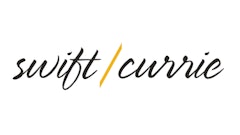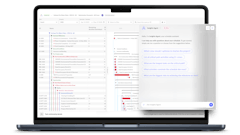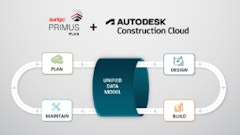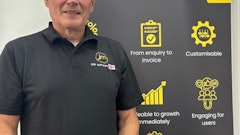
There is a lot of risk involved when adding a new employee. That's why construction contractors should always interview for fit. Interviewing for fit means interviewing to make sure the person you might hire fits the current position you are trying to fill and not worrying about how that person may do in a higher position further down the road.
A lot of construction companies hire new employees that turn out not to be a good fit for the position he or she was hired for. Often the laws of human nature take over: the employee embraces the parts of the job he or she enjoys and avoids the tasks he or she doesn't. The employee tries to pass the unpleasant tasks off to other and tries to steal tasks he or she likes from them.
Always interview for fit. Don't worry about how the person you are hiring will do in a higher position further down the road. If the person doesn't fit the position you are hiring for he or she will never get a chance to perform the higher level position.
Interviewing for fit is a bit of a learned skill. It requires you to get the interviewee talking openly in a very relaxed manner. You need to ask very open ended questions. You need to share minimal information about the job and your company prior to getting to know the person.
A company that is desperate to fill a position will most likely struggle with these suggestions. Such a company will be so eager to convince someone to join talk about how great the company is and how great an opportunity the job is for the candidate. Once you've shared that information you've laid all of your cards on the table. If you show your cards first it makes it very easy for a person with decent people skills to say the things you want to hear.
Get them to lay their cards on the table, and do it in a way that you don't tip them off to the right answers. In other words, if you feel the position requires someone to take charge, shake things up and take initiative without much oversight from you don't tell them that. Listen for examples of that when they talk about their past experiences. The person who brings that mindset to the table is going to share story after story about it. The person who brings a team oriented, play by the rules, don't rock the boat mindset is going to tell you those types of stories. If you've clued in the candidate that you need a take charge person the candidate is going to tell you take charge stories. If you ask the candidate how he likes to approach his position and you keep prodding him with non-judgmental questions he will eventually tell you enough about himself for you to figure out how aggressive he will be.
Ask non-work related questions. Ask him about his hobbies. His interests. Does the person like to work alone? Work with his hands? Improve his knowledge? What drives the person? All of his answers will help you get a feel for his fit to the job.
Don't ever hire someone who you question their fit. I can't count the number of times a client has complained about one of his or her workers only for me to discover the worker was an absolute horrible fit for the tasks being asked of them. If you adhere to the philosophy of "It's his job to do. Anyone can do it well." then you are destined for staffing problems.
Lest you think I don't believe you will have to sell yourself and your company to the right candidate, fear not. That is a necessary step in the interviewing courtship. Once you are convinced the person you are interviewing might be a good fit, switch the conversation around and describe your company. Explain its business strategy. Explain how work is sold and performed. Tell them how the position you are filling fits into the scheme of things and what the person holding that position must do well. If possible, show them some of the work output. Ask the candidate what he thinks about the position. Did he hear anything that seemed off kilter a bit and might need adjustment?
If you have the right person sitting across from you at the table, by the end of the interview you should already be building the foundation for a successful relationship. Just be careful to not get taken in hook, line and sinker by a smooth talker who you gave all the answers to before he had a chance to talk.
Every job has a perfect fit and the fit is different for every job. Forget that at your own peril.




















